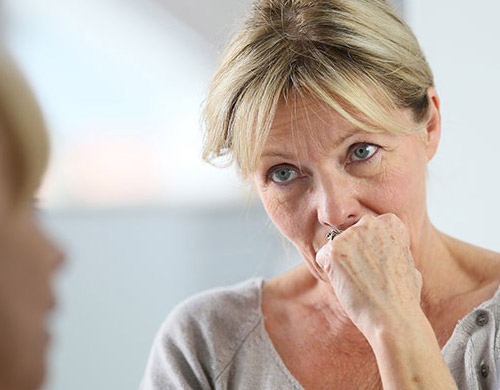The purpose of a medically supervised detox is to help individuals overcome the difficulties associated with withdrawal symptoms and psychological conditions which they may exhibit during the process of detoxification. At United Recovery, we provide medically supervised drug and alcohol detox in a safe medical environment.
To learn more about our addiction detoxification program, we provide a breakdown of what it entails and what you can expect when you need a comfortable and medically supported detox.

What Is a Medical Detox?
The journey of addiction recovery starts with detox from drugs and/or alcohol. Once you are ready to take the courageous step towards rehabilitation, we offer a complete inpatient detox program in which addictive substances are safely removed from the body.
Medical detox is the process in which drugs and alcohol are removed from the body through the safe metabolism of the substance. During this period, you may experience withdrawal symptoms that can cause moderate to severe discomfort. To help you through the process, our professional team will explain withdrawal symptoms and side-effects to prepare you for successful completion and help prevent relapses.
Detox from drugs and alcohol can be a very difficult and even life-threatening process; however, with a medically supervised detox professional medical staff monitor your condition and will help you through the process with therapy and prescription medication. We provide ongoing support to help you successfully complete the addiction detox and enter our rehab treatment program.
Arriving at Our Detox Facility
Once you arrive at our detox facility, our qualified and friendly medical professionals will perform a complete mental and physical assessment in preparation for addiction detoxification. They will determine the nature and severity of your addiction, and eventual co-occurring disorders, and whether comfort medications are required during the process of detoxification. While the provision of medication is based on an individual evaluation, it is only a part of detox and not considered a long-term solution in treatment.
To enter residential rehabilitation, all persons must first complete a medical detox. Detoxification does not take the place of therapy and addiction treatment but is the first part of working towards recovery.
It is important to understand that addiction detox is the first part of the recovery process. Only once drugs and alcohol are removed from the body can therapists assess your behavior, mental and emotional health to help you work towards recovery, balance, and sobriety.
Do You Need Help?
We offer initial assessment and advice via phone or contact form.
How Does a Medical Detox Work?
Addiction detox is performed in a medical environment and is supervised by professional and experienced medical staff. Once you reduce or quit the amount of substance used, your body will start to experience withdrawal symptoms. The discomfort and severity of withdrawal depend on the type of substance used and how long you’ve been addicted to drugs and/or alcohol.
For example, withdrawal symptoms from alcohol addiction can lead to life-threatening circumstances and often require medical intervention for the safety of patients. We provide detox medication and comfort meds to ease discomfort and the symptoms associated with withdrawal such as anxiety, nausea, and intense cravings for drugs and alcohol.
Patients who are admitted for opiate abuse may be given Subutex (buprenorphine) to taper them off. Clients may also receive anti-anxiety meds, sleep meds, and muscle relaxers (PRNS) to help with withdrawal symptoms.

Withdrawal Symptoms by Substance
Withdrawal symptoms from opioids: anxiety, goosebumps, restlessness, insomnia, yawning, runny nose, watery eyes, widened (dilated) pupils, body aches, sweating, vomiting, belly cramps, diarrhea, fever, shaking, fast heartbeat, rapid breathing, high blood pressure, hallucinations, seizures
Withdrawal symptoms from alcohol: feeling anxious or nervous, feeling irritable, feeling depressed, feeling wiped out and tired, shakiness, mood swings, not being able to think clearly, having nightmares, dilated pupils, sweating, headache, difficulty sleeping, nausea and/or vomiting, appetite loss, faster heart rate, pale skin, tremor
Withdrawal symptoms from amphetamines: fatigue and intense sleepiness, increased appetite, twitches and other body movements, slow reactions and movements, aches and pains, agitation, irritability, nightmares, depression
Withdrawal symptoms from stimulant drugs (for example cocaine): agitation and restless behavior, depressed mood, fatigue, general feeling of discomfort, increased appetite, vivid and unpleasant dreams, slowing of activity
The following types of medications are prescribed based on individual withdrawal symptoms:
- Clonodine- for hypertension anxiety
- Robaxin – for muscle spasms
- Requip – for restless leg syndrome
- Seroquel – for insomnia (sleep meds)
- Trazodone – for insomnia (sleep meds)
- Vistaril – for anxiety agitation
- Zofran – for nausea withdrawal symptoms
- Keppra – anti seizure medication – typically for benzo & alcohol

How Long Does the Detox Process Last?
The detox process differs. Usually, however, a medically supervised detoxification lasts between 7-14 days. It depends on the type of substance dependence, the severity of it, and how long they have been using drugs and/or alcohol. Withdrawal also depends on the overall psychological and physical health of patients. In addition, co-occurring addictions and conditions may affect the length of the detox.
Whether you are new to detox or you have previously gone through the process of detox, we offer programs that are suited to your individual needs and circumstances.
Completing Your Medical Detox
Once the medical team is happy with your progress and you have chosen a residential rehab program, we will assist you in continuing your addiction treatment.
If you have chosen a detox-only program, then our counseling team will discuss the next steps in continuing your recovery program as an outpatient.




